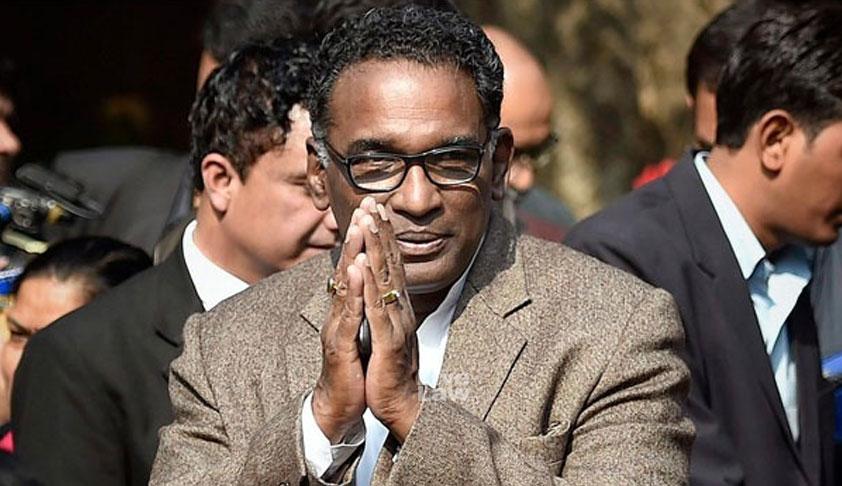The Executive is Threatening Judicial Independence

Justice J. Chelameswar has been a vocal advocate of judicial independence. In January four of the senior-most Judges of the Supreme Court held an unprecedented press conference where they raised serious questions over how the Supreme Court was functioning. The four outspoken Judges were; Justice J. Chelameswar, Justice Ranjan Gogoi, Justice Madan B. Lokur, and Justice Kurien Joseph. On March 21, Justice Chelameswar has once again raised questions regarding ‘political interference’ in the Judiciary through a letter addressed to the Chief Justice of India and copied it to 22 Judges of the Supreme Court. The effect of the letter has been that the inquiry against a District and Sessions Judge has been dropped by the Karnataka High Court. The contents of the letter are another doomsday warning for Indian democracy.
The letter highlighted the instance of District and Sessions Judge P. Krishna Bhat whose name had been recommended by the Karnataka High Court to the Supreme Court for elevation. The Supreme Court had upon agreeing with the recommendation submitted its recommendation to the government. However, the government had instead chosen to elevate five others while neither returning Judge Bhat’s recommendation for reconsideration nor elevating him. The Ministry of Law and Justice then sent a communication to the Chief Justice of the Karnataka High Court to reconduct an inquiry into an allegation levelled against Judge Bhat.
The allegation against him was made by a Judicial Magistrate First Class (JMFC), M. S. Shashikala. In 2014, Judge Bhat had sent a report of misconduct by the JMFC to the High Court. The High Court had accordingly registered vigilance proceedings against her which were not acted upon till 2016. Till the time the proceedings began, there had been no complaints against Judge Bhat. However, after the proceedings began she filed a complaint against him. The then Chief Justice conducted an inquiry, the result was that the complaint was malicious and designed to malign his reputation. Accordingly, the matter was disposed of.
Justice Chelameswar, however, had no qualms pointing out the impropriety of the Union Ministry of Law and Justice in asking the Chief Justice of the Karnataka High Court to reopen the inquiry. It had already been disposed of by the former Chief Justice of the Court, the Supreme Court had also accepted its findings. The other issue was that in doing so, the Ministry of Law and Justice had bypassed the Supreme Court. This arises because the Supreme Court had been the one to recommend his name.
The other issue raised by the letter was that the government has been selectively elevating judges recommended by the Supreme Court. Though the letter did not specifically mention any instances, there is currently a lot of speculation regarding the elevation of Justice K. M. Joseph. Justice Joseph had attracted the present government’s ire by his decision to strike down the imposition of President’s Rule in Uttarakhand. The Union Government has stated its decision not to elevate Justice Joseph to the Supreme Court because of his lack of seniority. However, in the Second Judges case, the Supreme Court had stated that merit is the first criteria to be fulfilled, after which seniority is considered. Justice Chelameswar’s letter has highlighted the gradual creep of the Executive on the Judiciary in a bid to undermine the separation of powers and the Constitution.
Get the latest reports & analysis with people's perspective on Protests, movements & deep analytical videos, discussions of the current affairs in your Telegram app. Subscribe to NewsClick's Telegram channel & get Real-Time updates on stories, as they get published on our website.























